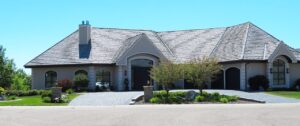Energy Efficiency is Possible In Your Apartments, Too
At a time where energy costs have nearly doubled in less than a year, it’s not uncommon to find yourself searching for ways to save on energy costs. For those of us who are renting or even those of us who own properties, energy savings are important because if your tenant pays for energy separately, it creates just another benefit of living with you. If your place remains vacant for a month or two, it also cuts your costs. People believe that making a home or apartment more energy efficient means massive renovations or expensive upgrades, but that couldn’t be farther from the truth. Renters have several practical and cost-effective ways to reduce energy consumption and reduce their carbon footprints. We will explore ten simple ways to make your apartment more energy efficient without making significant changes. You can save money on utility bills while contributing to a more sustainable future if you adopt these habits.

Investing energy-efficient LED bulbs for your apartment. It’s no surprise anymore that LEDs consume significantly less electricity. If you’re not in a place to buy new lightbulbs for the whole apartment, just swap out a couple at a time (save old bulbs if you’d like to take the LEDs with you or speak with the landlord about reducing your rent for the upgrade). Another change you can make without spending money is simply by opening curtains and blinds and remembering to turn off lights when leaving a room, you’ll gain light and warmth free of charge.
Unplug unused electronics: Many electronic devices continue to consume power even while they are in standby or idle mode. Unplug chargers, TVs, gaming consoles, and other appliances when not in use to eliminate “vampire” energy drain.
Use power strips: Plug your electronics and appliances into power strips with built-in switches. This way, you can easily turn off multiple devices at once, preventing standby power usage. Power strips also offer surge protection, safeguarding your devices from electrical fluctuations.
Manage thermostat settings: Adjust your thermostat settings to conserve energy. Lower the temperature during the colder months (68 or lower can be comfortable especially with a long sleeve shirt or light sweater on) and use extra layers or blankets for warmth. In the summer, raise the temperature slightly (74 or higher is typically where energy savings come in) and use fans to circulate the air. You can even invest in programmable thermostats allow you to set schedules that match your daily routine and automatically adjust temperatures when you’re away.
Seal air leaks: Identify and seal air leaks around windows, doors, and electrical outlets. Use weatherstripping, caulk, or draft stoppers to prevent cold drafts in winter and hot air infiltration in summer. This simple step can significantly reduce heating and cooling losses.
Make use of natural ventilation by opening windows and allowing fresh air to circulate. This helps maintain indoor air quality and reduces the need for energy-intensive fans or air conditioning units. Look into which direction your fan should be circulating (one direction pulls air upward while the other pushes it down).
Two words: Window coverings. These bad boys can not only control light, but also dampen sound, reduce heat loss, prevent additional heat from coming in, etc. Install blinds, curtains, or shades to control the amount of light and heat entering your apartment. During the summer months, close window coverings during the hottest part of the day to prevent excessive heat buildup. In winter, open them during daylight hours to allow the sunlight to naturally warm your space.
Conserve water: Practice water-saving techniques, such as taking shorter showers, fixing leaks promptly, and using faucet aerators to reduce water flow. Additionally, wash full loads of laundry and dishes, as this optimizes water and energy usage.
Uncover vents and radiators: Ensure that heating vents and radiators are not obstructed by furniture, curtains, or other objects. Clearing these areas opens you up to more even heat/cool air distribution throughout your apartment.
Educate yourself. That is not meant as a dig, but simply stay informed about energy-saving tips and techniques. There are huge Tik Tok and Instagram channels dedicated to this one purpose. You can also find local Facebook pages ran by your local utility company, government energy programs, and reputable environmental organizations and they can be very informative about their time of use/energy saving programs. In addition to valuable advice, they sometimes offer incentives for reducing energy consumption.
Energy efficiency is of benefit to everyone involved and it’s not hard to achieve. Though we shared a lot of possibilities that don’t require lease-breaking alterations, you need only to implement one or two to start reaping the benefits.



